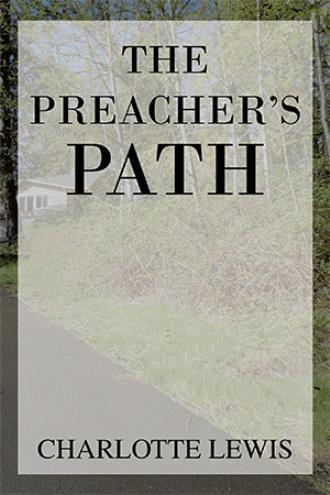The Preacher’s Path

CHAPTER ONE
Hiram William Carter was born in Southern Indiana to a fairly well-to-do family. He had older siblings, a brother and a sister, Harold Wilcox Carter and Harriet Winona Carter. His father was a professional man; his mother a homemaker. For the first eight years of his life Hiram enjoyed being a child; life was good. Then, the stock market crashed and his world was turned upside down.
Hiram never really understood what it was that his father did. He just knew that he left the house every morning in a suit, starched white shirt, and a drab tie. His father carried a briefcase to work. The Chief of Police reported that on the morning of October 30, 1929, his father was found dead – an apparent suicide. Hiram’s mother had never been responsible for the finances of the household and was at a loss as where to begin. Within days she discovered that rather than being ‘well fixed’ financially, she was destitute. She was told her husband had invested nearly every dollar in the stock market. She doubted that. Her husband often made rude comments about the stock market. But the bank said there was no money.
Even if there had been money in the checking account, she could not access it. There were several legal reasons, supposedly, as her husband had committed suicide. But the primary reason was that, as a wife in the twenties, she was not a signer on any of the family accounts. She had no claim to any of her husband’s assets, including the very house she lived in. It took the bank less than sixty days to post an eviction notice on her front door. She was unaware of a mortgage. It had never been discussed and her husband discussed things with her.
Harold was sent to Uncle Hector. Then Harriet was sent to an Aunt somewhere in Pennsylvania. Hiram knew where Pennsylvania was from geography lessons but that did not tell him where Harriet was. Hiram’s mother found a position as maid and laundress for a well-known woman in town. Hiram was not welcome there. His mother sent him away. Hiram had no one; any sense of security was gone. He was abandoned by his mother.
Hiram was a good student and could read, write, and cipher. But, he was just a boy and no one wanted to hire him. He was taller than most his age so many people thought he was older, and stronger. He could fake the older but he couldn’t fake strong. He helped in gardens, pulling weeds. He helped in households, scrubbing stairs and walkways. He helped anywhere someone would hire a tall, lanky, young boy. Most often he would work for just a meal. He slept under the stairs of buildings and, sometimes, houses until the householder would catch him and send him on his way.
One day when he was scrounging near the grocer’s garbage, the grocer asked if he was looking for work. Yes, he was. He worked daily for the grocer for quite some time at ten cents a day. He would sleep at night between the sacks of flour in the store room. Then the grocer discovered that Hiram could add and subtract. He had a new position in the store. He was now a clerk. He was nearly eleven years old but looked much older. He was paid a dollar a week.
As time passed, the grocer led Hiram into religion. Well, not really religion but the idea of a god and the Bible. This was new to Hiram. His family had had no church and no religion. He read and reread the Bible until he could quote nearly any verse from any book if asked for it.
Hiram couldn’t afford a college education but learned he could afford one class, three times a week. He saved his money until he had enough to enroll in a Divinity Class. While he may have done better taking a general course of education, he felt compelled to learn more about the religion his employer thought was the way to a good and honest life.
Hiram came to believe that the biggest problem with the world was a lack of faith. Not faith in a god but in each other. He wasn’t sure there was a god. And so, he determined he would become an itinerant preacher going from place to place to preach brotherly love. He had saved some money but believed that the New Testament proved an itinerant preacher could sustain himself through the charity of others. Hiram also felt he was capable of picking up odd jobs if money became an issue.
It was 1939. Much of Southern Indiana and Northern Kentucky was still recovering from the Great Depression that displaced his family. Hiram was neither impressive nor imposing but he did have an aura about him that many people felt. He wasn’t preaching hellfire and brimstone; nor was he preaching salvation. He was preaching brotherly love. That had to be enough.
Deceit. Fraud. Greed. Grief. Betrayal… Friendship, Family, Reunion, Gratification. Murder?
Oh, and a dog.
This is Hiram’s story.
